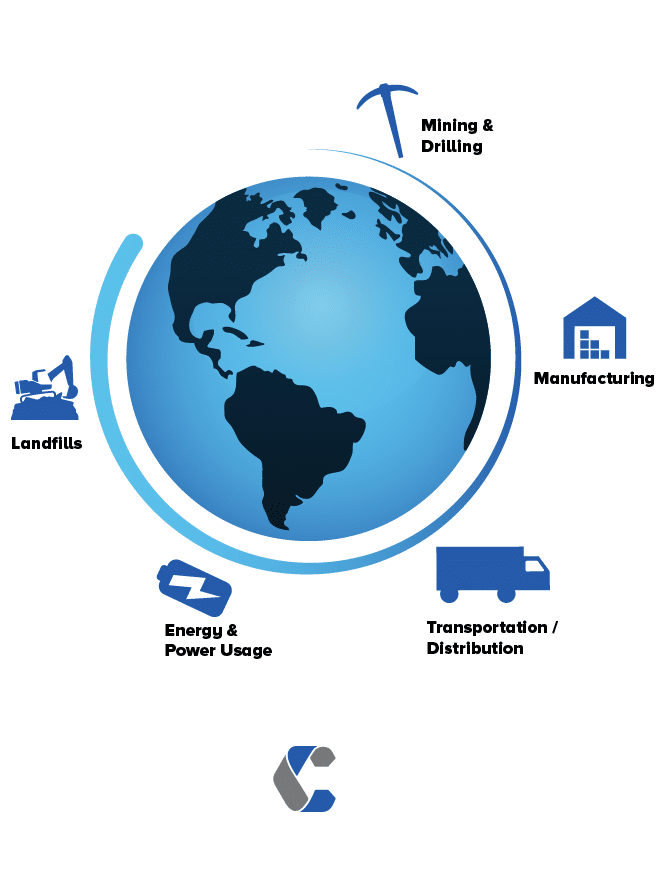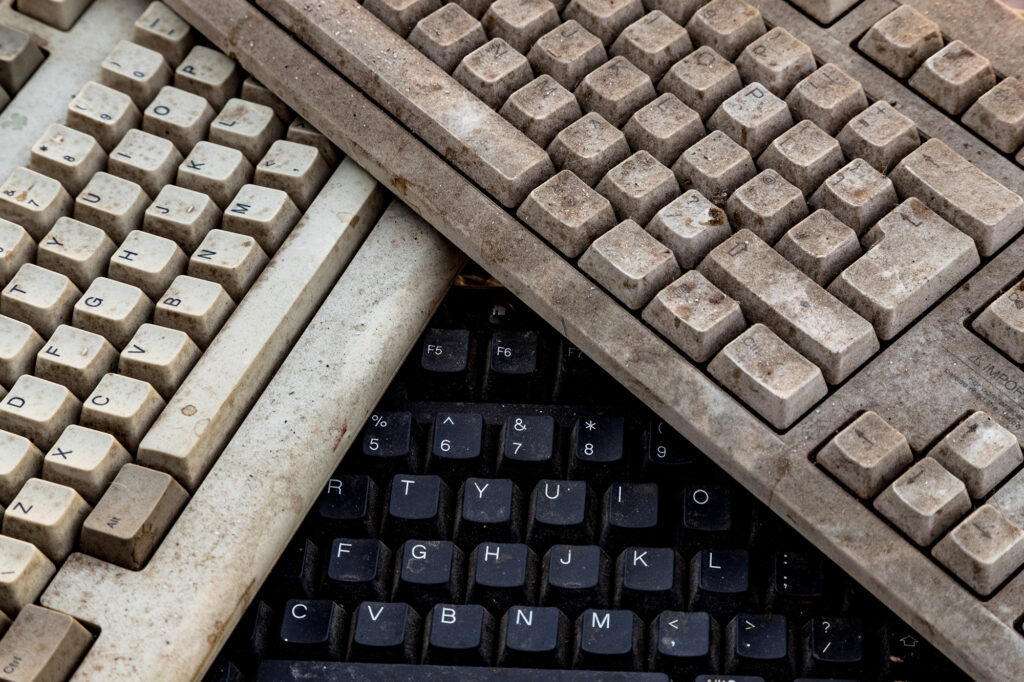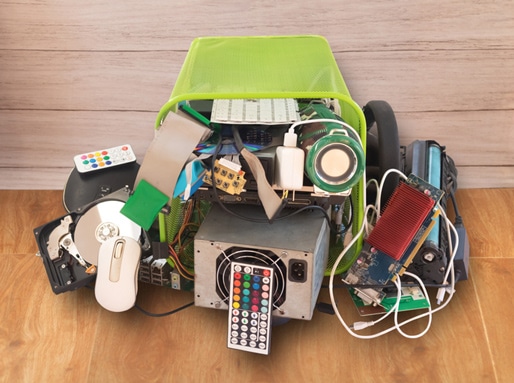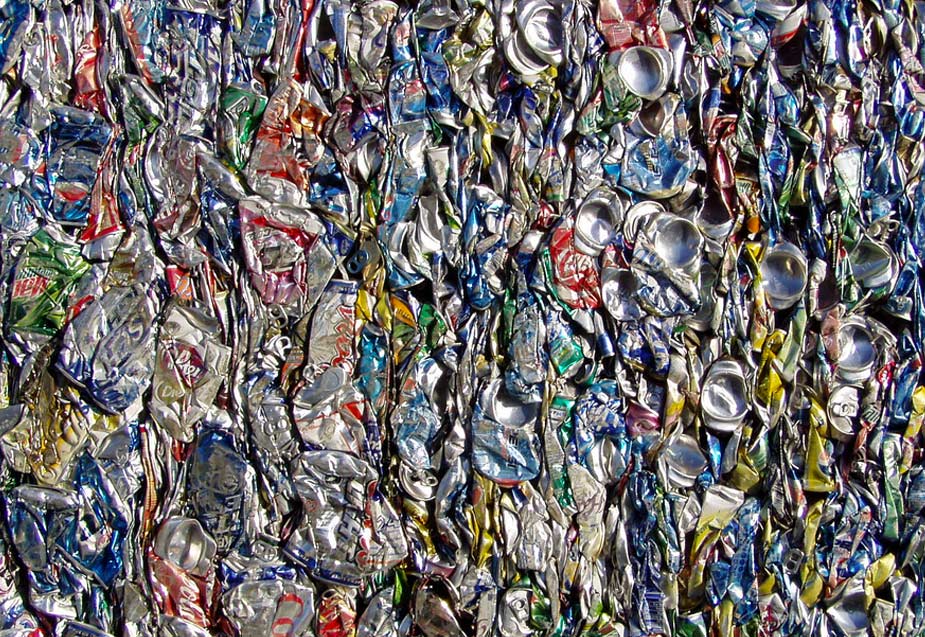Electronics aren’t typically the first thing that comes to mind when you think of recycling, but they should be. From lamps, hairdryers, and blenders, to ATMs, security systems, and medical devices, to personal computers, smartphones and network equipment, we interact with or rely on electronics practically all day every day – probably more than anyone would like to admit.
So it should come as no surprise that electronic waste is the fastest growing global waste stream.
We did the math back in 2014 and found that enough electronics are discarded worldwide to fill Paul Brown Stadium from turf to top every day for an entire year. And that was years ago. The faster we see technology advancing, the more we are getting rid of.
ENVIRONMENTAL IMPACT OF ELECTRONICS
The environmental impact of electronics dependency hits at every stage of the lifecycle. Before we get into that, one thing should be clear: “the environment” doesn’t just mean the wilderness and all the plants and animals who live in it. It includes the air people breathe and the water we drink. It includes our food supply. It includes our communities and our health. With that in mind, let’s look at the lifecycle of electronics and how each stage impacts the environment.

MINING & DRILLING
Raw materials used to create the components in our electronics are derived from natural resources. Metal ores eventually become wires, diodes, and transistors, and are even present in things like touchscreens. Plastic is derived from oil. These natural resources are limited and non-renewable; when we run out, that’s it. Gone. Done-zo. Fini.
Beyond that, the processes for extracting ores and oil from the Earth – mining and drilling – are incredibly damaging to the environment and ecosystems around the mining sites. (As a metal recycler, we’ll focus on that element.) Once a mine is used up, the damage is done and practically irreversible, and the mining company moves on to the next site to repeat the process.
Most Americans will go their entire lives without seeing a mining operation in person – because most of them are overseas or in other countries, such as Chile (the largest global supplier of copper ore), Peru, China, and India. Within the U.S., they are often located far from population centers, out of sight and out of mind. Environmental regulations around the world are far from standardized, and mining companies don’t have a lot to lose by playing fast and loose with inconsistent or unenforced rules. So from the very start of their lifecycle, electronics already have a strike against them.
Manufacturing
It takes several steps to get from metal ore to a finished consumer product. Each one of those steps involves manufacturing processes that rely on massive amounts of water and electricity, and have a significant carbon footprint. Then there’s the freight: moving metal from one stage to the next means producing emissions and greenhouse gases.
Meanwhile, it’s much more cost-effective and energy efficient to use recycled metals in manufacturing than raw ones. Recovering usable materials through recycling uses a fraction of the energy needed to mine new metals. Putting more electronics into the recycling stream makes more of these materials available for re-use in manufacturing and reduces the demand for mining.
Transportation/ Distribution
The distribution of electronics has a significant impact on the environment. The global transportation network is designed to move goods quickly and efficiently from one location to another. However, this system comes at a cost.
Freight ships, trains, and trucks all use fossil fuels, which release harmful emissions into the atmosphere. In addition, the distribution of electronics often relies on rare earth minerals, which are mined in environmentally destructive ways. Once the products reach their destination, they are often packaged in plastic or other materials that are difficult to recycle.
As a result, electronic waste is one of the fastest-growing types of waste worldwide.
Energy & Power
Electronics require electricity. (Duh.) That electricity comes either from an outlet connected to the power grid, or from batteries. The vast majority of electricity in the U.S. still comes from non-renewable, eco-unfriendly resources like coal.
Batteries are notoriously difficult and dangerous to dispose of. Lithium, cadmium, and lead are all examples of toxic metals found in batteries – metals that will make their way into the soil and water if those batteries are allowed to decompose in a landfill. And speaking of…
Landfills
Electronics have more staying power in a landfill than they do in the marketplace. We’re talking hundreds if not thousands of years for an intact device to reach full decomposition – you might as well say never. And all that time, their components are slowly breaking down and leaching into their surroundings.
While this isn’t a highly visible problem in the U.S., a lot of electronics have ended up overseas in “e-waste graveyards” in developing nations. There, people who are desperate for the valuable metals within the electronics will go to dangerous means to access them. That includes burning away the non-metal materials, sending hazardous elements into the air, soil and water. Those elements have been shown to cause serious health problems for those exposed to it, including brain damage and birth defects.
And that’s not even getting into the data security aspect of electronics disposal – but that’s a topic for another article.
WE DON’T TELL YOU ALL OF THIS TO MAKE YOU FEEL GUILTY ABOUT YOUR GADGETS.
After all, the manufacturing lifecycle and its side effects are present for all kinds of consumer goods, not just electronics. All we want is for you to think twice when you’re ready to upgrade your devices and say goodbye to the ones that have served their purpose. Can it be gifted? Donated? Resold? Refurbished? Repurposed?
If all of those answers are “No,” recycling is the last resort – and yes, Cohen can recycle your electronics. Visit our Recycling Guide to look up specific items and what you might need to know before bringing them to your nearest Cohen Recycling Center. And if you ever have questions, just ask! Obviously, we could talk about this all day. We’re happy to help




